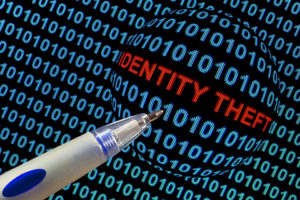Identity Theft of the Dead affects the Living
You don’t have to be living to have your identity stolen. Every year in America there’s 2.5 million cases of ID theft involving the deceased. And while your first reaction might be “So what, I’ll be dead and I won’t care”, you need to keep in mind that identity theft of the dead often significantly affects the living. How can this be prevented or at least, minimized?
Though it’s hard to do, closing down the decedent’s Facebook page will contribute to preventing ID theft.
Contact the Social Security Administration
This agency has a “death master file” of the SS numbers of deceased people that should be rendered inactive. This way a thief can’t use the number. Don’t wait for a funeral director to do this (though that’s their job); do it yourself for faster results.
Obits
When composing an obituary, people should post very little information. Crooks actually read these in search of a possible ID theft victim. The information to leave out includes names of survivors, complete addresses and professional history.
Receiving Bills
If a decedent’s identity has been hijacked, a survivor may begin receiving bills in that person’s name…and eventually, calls from collection agencies. “The problem isn’t so much financial — it’s emotional,” says Maria Cordeiro with the Chubb Group of Insurance Companies in an article from business-news.thestreet.com. You may have to be dragged through the pain of proving that your deceased loved-one is, in fact, no longer around.
How do you fix this problem?
- Get all the needed documentation together, because you’ll need to send it out to any entity that requires it for proof.
- Obtain a credit report prior to the person’s death. Of course, this works in cases of a diagnosed terminal condition versus accident. Once you have the person’s credit report, then six months after death, obtain another for comparison, says Cordeiro. The decedent’s name and SSN, six months later, should be in the death master file.
- Do some credit monitoring. This is easier than obtaining a credit report for someone who’s dead.
- Do a credit freeze. For a small fee, the credit report gets frozen shut, preventing a thief from opening a new account.
Robert Siciliano is an identity theft expert to BestIDTheftCompanys.com discussing identity theft prevention. For Roberts FREE ebook text- SECURE Your@emailaddress -to 411247. Disclosures.



























